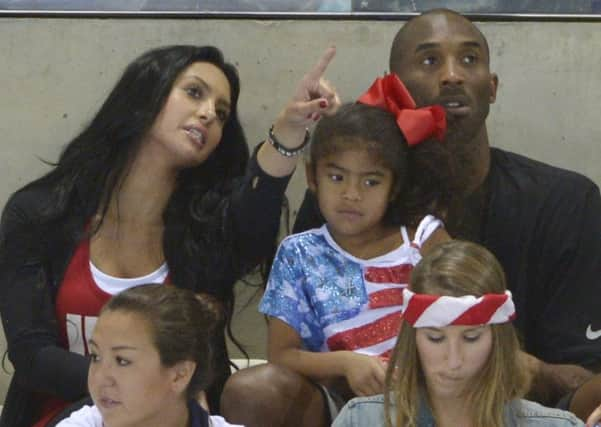How dads like Kobe Bryant make huge difference to daughters’ lives – Dr John J Marshall


The tragic death of Kobe Bryant and his 13-year-old daughter Gianna in a recent helicopter crash has shone a spotlight on the importance of the relationship between fathers and their daughters.
Bryant’s cherished relationship with his daughters has spurred other fathers to share their own ‘girl dad’ experiences. Dads come in all shapes and sizes, including stepfathers and mothers who take on paternal roles, but what does psychological science tell us about the unique role of fathers?
Advertisement
Hide AdAdvertisement
Hide AdRelatively recently, there has been a surge of consideration and research on fathers and their role in the well-being and development of their children. Previous research has been about what men have failed to do for their families. We now know of the devastating effects on children when fathers are imprisoned, for example.
This absent-father emphasis has now shifted more to a perspective on positive involvement and the unique ways fathers contribute to their children. Research has shown that the close involvement of dads cannot be underestimated.
It has significant consequences for child well-being, especially concerning diet/nutrition, exercise, play, reading and discipline.
That said, the stereotypical ‘disciplinary breadwinner’ days are over. Over the historical sweep from the 1960s to now, researchers describe how a “new fatherhood” is emerging, with an improving balance between workplace and home. There is still a long way to go, but since the 1960s dads have trebled their role in childcare.
Fathers who are engaged with their kids can enhance their cognitive development, reduce behavioural problems, and there are effects for girls where a positive dad or father figure reduces the impact of psychological issues.
Being a masculine role model is tricky for dads, while seeing jokes fall flat as their kids become teenagers, they must be a care provider, teacher and supportive parent.
Girls who are thriving and resilient report to researchers that there was nothing magic about their fathers, they were just there for them, even after they leave home. With girls, it has been shown that fathers’ reassurance toward their daughters regarding relationships with young men makes an immense impact.
Fathers positively influence daughters’ perceptions of relationships – without even having to menace or threaten their boyfriends. Involved fathers help their daughters learn how a man is supposed to treat them.
Advertisement
Hide AdAdvertisement
Hide AdOne study showed that daughters were more likely to develop depression later in life if they did not have a good bond with their father. What does being supportive – a word used so often it fails to render meaning – look like?
Research shows fathers who can create an environment where daughters feel happy to develop trust, talk about feelings, working through life challenges together without moving too quickly to solution mode, supporting decisions even when they disagree, will engender security and safety.
So being a father is complex, especially when it comes to masculine identity. It’s all very well calling all men privileged when young men have such high suicide rates, substance abuse problems and unemployment. That said, men need to learn to move beyond traditional ideas of power, dominance and achievement.
Manliness is now a contested territory. Kobe Bryant’s legacy is the cheerleading chorus that “girls are great”. Having belief in our daughters, through education, respect and encouragement, will contribute to lifelong resiliency.
Dr John J Marshall is a consultant clinical & forensic psychologist
